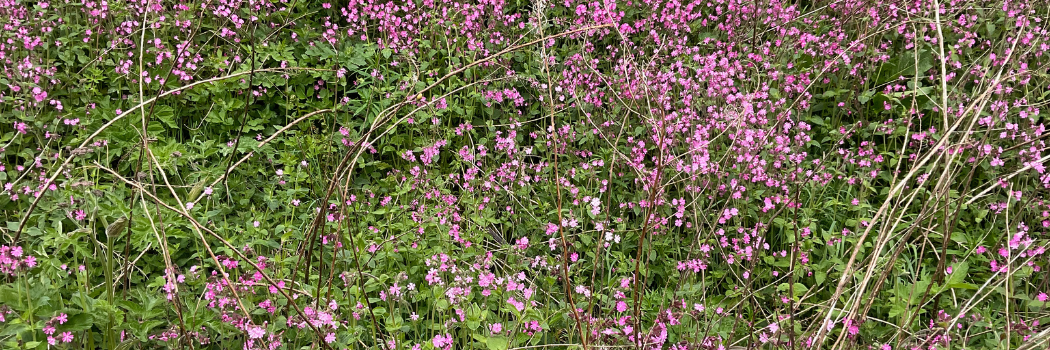
Scientists at from our Biosciences Department working with colleagues from the University of Liverpool, have discovered that shop-bought wildflower seeds may be putting Britain's native plants at risk.
The research focused on red campion (Silene dioica), a common wildflower often included in seed mixes for creating meadows and pollinator-friendly spaces.
Wild and commercial plants are not the same
The study found that while wild and commercial red campion both have high levels of genetic diversity, they are not the same.
Plants grown from commercial seeds tended to be bigger and more vigorous than those from wild populations.
Genetic testing also showed that commercial plants are distinct from their wild counterparts, likely because they have been grown and selected in cultivation.
Why this matters for biodiversity
Although larger plants might sound like an advantage, introducing them into the countryside could have hidden costs.
When commercial plants cross-pollinate with local wildflowers, they can dilute or even erase the special traits that wild populations have developed over time.
These traits such as the timing of flowering or tolerance to local conditions are the result of centuries of adaptation.
Losing them could make wild populations less resilient to pests, disease, or the effects of climate change.
Red campion is widespread across the UK, yet even this common species showed clear differences between wild and commercial populations.
This suggests that other wildflowers, particularly rarer ones, could be even more vulnerable.
The study highlights the importance of protecting local adaptations if we want to maintain healthy, diverse ecosystems.
Call for restoration
Wildflower planting has become increasingly popular across Britain as councils, charities, and communities work to restore habitats and support pollinators.
While these projects bring many benefits, the researchers warn that they must be carried out with care.
They recommend using local, genetically diverse seed wherever possible and call for urgent guidelines to help conservation groups and seed suppliers make the best choices.






